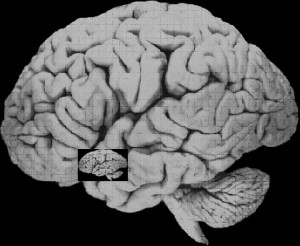A Place and a Name
“In My house and within My walls I will give them a place of honor and renown which is better than sons and daughters; eternal renown will I give them, which will never be terminated,” – Isaiah 56:5
What I like about Dante is that he puts every person in a specific place. All humans of the past present and future, if not currently in transition, can be found in at their own address in heaven or hell. In the thirteenth century Ptolemaic universe that Dante wrote, Paradiso, Purgatorio, and Inferno of the Afterlife were contiguous with our living earth of the present, open to the intrepid explorer, like Aeneas who’d explored Hades before him. Thus did The Divine Comedy account for the universe of Dante’s time. If Dante was challenged by the Ptolemaic model, that does not detract from the enormity of his poetic vision expressing a Theory of Everything for his era.
Here is a more profound idea as far as I am concerned. Every person is of account. If you think you count for nothing, that is especially sad, and sadder yet as you approach death. Isaiah 56 expresses this. It’s a shame most bibles translated from the Greek Septuagint instead of original Hebrew, have this wrong. The sentences leading up to Isaiah 56:5 refer to a eunuch in this translation, which makes no sense at all. The Hebrew translates not to the English eunuch, but to one who is barren or has no children, saying that even a person with no offspring who would seem to leave nothing in the world, if he or she is good, will have a place and a name of renown. That is despite any attempt to belittle or dehumanize, or deprive a person of life. A person worthy of renown will always be remembered. Where? In the Mind of God or His house, however you will have it, recorded for posterity. You may consider your memory diminished if you leave no offspring. Isaiah 56:5 quoted above maintains a person of merit leaves a remembrance better than sons and daughters. This is a retort to the monsters who slaughtered whole families. If you are an atheist and don’t believe in a deity, you may still take solace from it. All humans, all lives, exist and will forever exist, in eternal memory. Each of us counts for something. The State of Israel looked to Isaiah to memorialize the victims of the holocaust, calling it Yad Vashem, a Place and a Name, giving lie to their murderers thought helpless people who were shot into their own graves or gassed counted for nothing. All of these victims have a Place and a Name in memory.
This concept is profound in life and in death. For if you think because of being ostracised or belittled, or impaled or cremated that you are nothing, nothing could be further from the truth. Each of us counts. Our lives exist forever in a universal fabric, which for lack of a better picture, we’ll call the Mind of God. Discovering this I think it could be of great consolation to mourners for in it they would know that the person whom they mourn and love, will always be meaningful and not just to those who love them now. Every life is suspended in a space/time memory continuum. And for those who are afflicted with cancer of heart disease or any fatal process, who are alone, maybe they have had no children no friends and no relatives, no one who cares, there is a place and a name for them too. All of us, however sick or miserable or bereft or barren are taken into account. I’d take more solace from this passage at funerals than psalm 23.
Mind of Man in mind of God

Wonderful, thoughtful post. It reminded me of the parable of Indra’s Web, and how we’re all connected beyond biology (no pun intended). We’re so much more than we think we are.